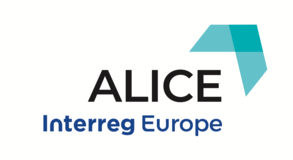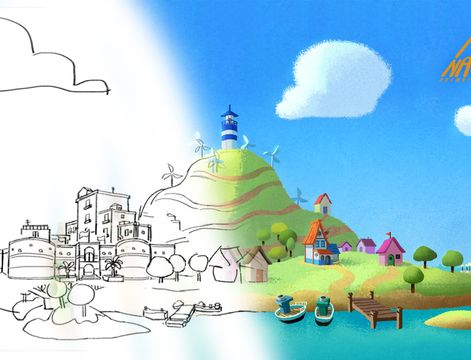As the ALICE project continues to work at developing the competitiveness of the European animation industry, one of the main challenges concerns the question of training and retaining talent. Therefore, the project created a working group to reflect on this matter and develop implementable solutions for improvement.
As part of its activities, the ‘education and training’ working group, chaired by the Apulia region, conducted an extensive study of SMEs from Italy, France, Spain, Slovakia, Poland and Belgium, as well as schools, universities and training centers for professionals to assess the state of existing educational programs in animation in light of the market needs. Interviewees also included competent authorities responsible for education. Initial conclusions have been drawn and will help the working group to co-design with the industry training courses of reference adapted to the realities of the market.
It was interesting to see that the vast majority of the SMEs concerned essentially operate internationally and therefore look at international recruitment. Most of them are experiencing hiring difficulties. They pointed out the labor market shortage for qualified and experienced animators, as well as for managers and top executives. Meanwhile, almost 25% of the participating educational organizations reported that less than 20% of their students were able to find a job after completing their course.
Clearly, there is a gap between the curricula delivered and the qualifications the industry most desires. Creating education and training programs to develop expert-level animation skills emerged as being a critical issue for the industry. The second main hole in the existing education system is its ability to produce international-oriented talent and professionals.
The study helped identify the key competencies that education providers, be it schools, universities, professional training centers or SMEs themselves, should focus on to develop a competitive workforce. Today, these competencies include graphic and animation software expertise, drawing abilities and motion graphics knowledge, as well as creativity, attention to detail and time management ability. The study also revealed the importance of integrating international components to educational programs, including the teaching of foreign languages, management of cultural differences and negotiation skills, as well as the development of cross-border exchanges between students, professionals and experts.
 © Kabum studio, the making of 'Mustachos'.
© Kabum studio, the making of 'Mustachos'.
The companies surveyed emphasized the importance of continuous learning: students and active professionals should be able to learn, at any stage of their careers, the hard and soft skills the European animation market greatly needs. To this end and in order to enable the workforce to keep up with the constant industry changes, in-house and external training programs balancing theoretical and practical knowledge should be proposed.
These results show that attempts to optimize the performance of the different training systems within Europe will fall short without large-scale cooperation at different levels. Educational challenges in animation cannot be addressed by the school education system alone. First of all, at a European level, the parties concerned should work together to set up a framework of reference that the educational organizations could use to design their programs. This framework would include a desired set of competencies for animators, as well as standardized job descriptions and profiles based on the European Qualification Framework – EQF. Furthermore, schools and universities should be able to consult regularly with the industry to maintain up-to-date and market-oriented curricula, including academic lectures as well as workshops and internships. Bridges between schools and SMEs need to be established. Finally, and most importantly, political involvement will be absolutely required to build a favorable ecosystem supported by the necessary funding tools, resources and a solid European network of SMEs, training institutions and professionals.
The training courses of reference developed by the working group will be a concrete step towards further reforms, at national and European levels. At the same time, ALICE project will stay true to its objectives of making real change happen while raising awareness of these challenges and possible solutions among decision makers, and inspiring new policies for improvement.














